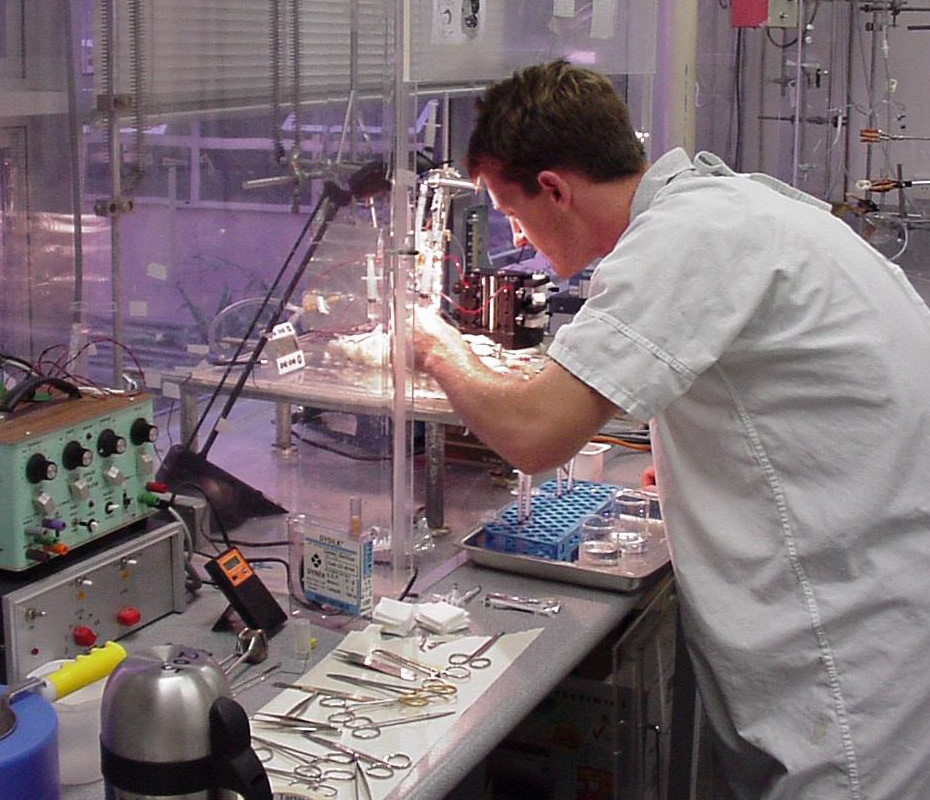Cardiovascular Physiology and Nutrition Laboratory
Location: building 41, room 306
Telephone: 4107
Contact person: Peter McLennan

Research Facilities:
- Human ambulatory blood pressure monitoring and heart rate monitoring, holter ECG monitoring and heart rate variability. Non-invasive arterial compliance assessment
- Small animal physiology:
- isolated working heart preparation for measuring cardiac function, oxygen consumption and metabolism
- direct catheterised or indirect (tail cuff) blood pressure monitoring
- electrocardiography
- integrated evaluation of skeletal muscle function and metabolism in autoperfused hind limb
- Computerised data acquisition and analysis
- General biochemistry and laboratory facilities
- centrifugation (ultra-, high-speed, benchtop, micro- and haematocrit)
- glucose/lactate analysis, portable blood gas electrolyte analysis
- gas chromatography analysis of fatty acids in food, and human and animal tissues
- Animal models
for:
- diabetes
- heart failure
- myocardial infarction, arrhythmia and sudden cardiac death
- skeletal muscle fatigue
- Also see: Exercise and Applied Cardiovascular Physiology Laboratory
Research Projects:
This Laboratory conducts a wide range of basic research projects in nutritional physiology and pharmacology, with a particular focus on the physiological and pharmacological consequences of altering cell membrane composition through dietary fats. More details of these projects can be seen under the Publications and Students pages attached to the home page. These projects fall within the following general catergories.
- Cardiovascular protective effects of omega-3 fatty acids
- Incorporating fatty acids into heart muscle membrane
- Prevention of sudden heart-attack death by inhibiting fatal heart rhythm disturbances
- Mechanisms of action of omega-3 fatty acids and antioxidants in the diet for cardioprotection and muscle fatigue
- Human evaluations of dietary influences on thermic effects of food and environment, cardiovascular effects of posture change, thermal stress and exercise
- Using animal models to evaluate nutritional prevention and treatment of heart failure associated with chronic hypertension and diabetes and muscle fatigue associated with cardiac disorders and ageing
- Association of human heart function in heart failure and rhythm disorders with patterns of blood and heart fatty acid incorporation
- Dietary influences on human heart function and muscle fatigue.
|
 Insert photo
Insert photo